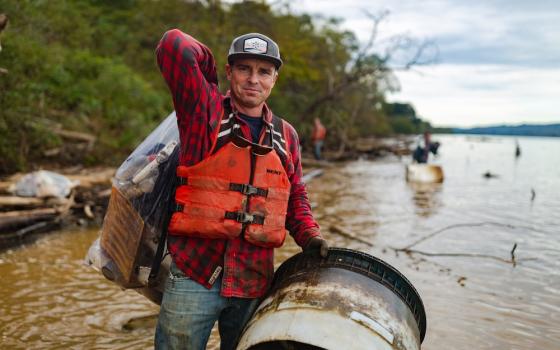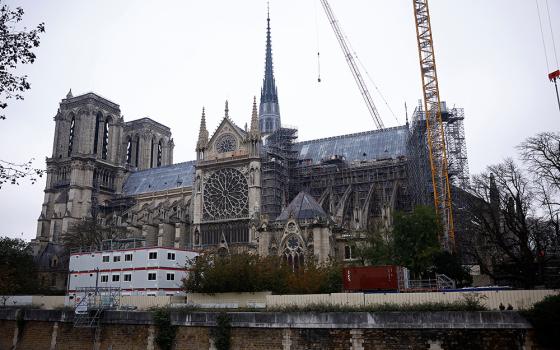Calling the federal government's migration protection protocols – also known as the "Remain in Mexico" policy – "baseless and immoral," a coalition of 500 religious organizations and leaders have asked Homeland Security Secretary Kirstjen Nielsen for an immediate end to the policy.
In a Feb. 26 letter to Nielsen, the religious groups and individuals said the policy "returns vulnerable asylum-seekers to Mexico and puts them at risk of further harm while they wait for their case to be processed in the United States."
"Our diverse moral teachings find consistency in the absolute value of the human person and our obligation to protect the most vulnerable among us," the letter said. "We call on you to uphold our country's asylum law and respect asylum-seekers and others seeking protection as the human beings they are."
The letter cited two main reasons for ending the policy: It "puts people fleeing danger back in harm's way," and it "jeopardizes access to counsel, due process and (the) overall ability for a person to find safety in the United States."
"Our country's asylum laws are based upon the international principle of non-refoulement – a promise that we as the United States will not send people back to countries where their lives or freedom will be at risk," the letter said.
However, "since July 2017, the dangers facing refugees and migrants in Mexico have escalated. Asylum-seekers forced to return to Mexico face risk of homelessness, malnourishment, disease, assault, kidnapping and death," the letter added. "Recent reports confirm that Mexican authorities continue to improperly return asylum-seekers to their countries of persecution and that the deficiencies in the Mexican asylum system have grown."
Central American countries such as El Salvador, Guatemala and Honduras – from where the bulk of many asylum-seekers have fled – "have some of the highest homicide rates in the world for countries that are not classified as being at war," the letter said.
"Additionally, the policy has serious implications for children asylum-seekers – leaving them without access to education and other factors that will permanently affect their development, health, and well-being."
On the access-to-counsel issue, the faith leaders' letter said, "Asylum-seekers' due process right to access legal counsel both during the assessment at ports of entry and while waiting in Mexico is seriously compromised by the policy."
Secretary of State Mike Pompeo announced what is being called the "Remain in Mexico" policy Dec. 20, saying it is provided for under Section 235(b)(2)(c) of the Immigration and Nationality Act.
Pompeo said the U.S. government notified Mexico's government it was invoking that section, a move he said was necessary "to confront the illegal immigration crisis facing the United States."
"Individuals arriving in the United States from Mexico – illegally or without proper documentation – will be returned to Mexico for the duration of their immigration proceedings," he said in a statement. "In response, the Mexican government has informed us that it will support the human rights of migrants by affording affected migrants humanitarian visas to stay on Mexican soil, the ability to apply for work, and other protections while they await U.S. proceedings."
In a separate statement Dec. 20, Nielsen said the action was needed because some "try to game the system" by entering the U.S. without legal permission and then "disappear" into the country. "Many skip their court dates" to appear before an immigration judge, she said, but under the new policy, "they will wait for an immigration court decision while they are in Mexico."
With regard to access to counsel for asylum-seekers, the faith leaders' letter, their "due process right to access legal counsel both during the assessment at ports of entry and while waiting in Mexico is seriously compromised by the policy."
"While awaiting a court date in Mexico, the ability to obtain a U.S. legal representative will be nearly insurmountable," it added.
"In the slim chance a person is able to retain legal representation, the logistics of speaking to and providing them with the necessary documentation to support their asylum claim would be costly, confusing, and negatively impact a person’s case. Given these unnecessary barriers, the policy will prevent asylum seekers from having a fair and equitable opportunity to seek protection and find refuge."
Dozens of religious orders and at least six Catholic Charities affiliates were among the Catholic signatories to the letter, as were the Catholic Legal Immigration Network, the Franciscan Action Center, the Catholic social justice lobby Network, the Maryknoll Office for Global Concerns, and Pax Christi USA. Likewise, dozens of women and men religious were among the individual signers to the letter.
Advertisement







